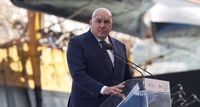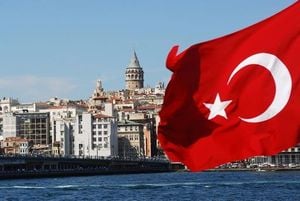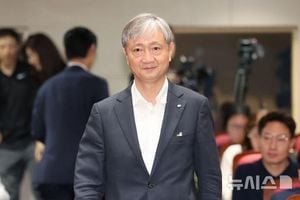Italy’s negotiations with Elon Musk’s Starlink have come to an unexpected halt, sending ripples through the defense and diplomatic sectors. On March 22, 2025, Italian Defense Minister Guido Crosetto announced that discussions with Starlink regarding a significant contract aimed at enhancing secure communications for government diplomats and military personnel had reached a standstill.
"Everything has come to a standstill," Crosetto was quoted as saying in an interview with La Repubblica, attributing the impasse partly to the political implications surrounding comments made by and about Musk. He emphasized how the dialogue had shifted from technical matters to public controversies, suggesting that the negotiations needed to return to their original focus on the practical and technical aspects of the proposed collaborations.
This stalled initiative reflects a complex intersection of geopolitical dynamics and national security needs. Prime Minister Giorgia Meloni’s government has been eager to secure robust, encrypted communication channels for officials and defense personnel operating under high-risk conditions, particularly amid rising tensions across Europe. The government had viewed Starlink, the satellite internet service provider boasting more than 7,000 active low-orbit satellites since its entry into the Italian market in 2021, as a key partner in establishing this vital communication framework.
Details surfacing close to the negotiations indicated that the Italian government was contemplating a groundbreaking five-year agreement worth approximately 1.5 billion euros (about $1.62 billion) with Starlink. Such ambitions, however, faced backlash from opposition parties, which have raised concerns about relying on a foreign entity closely associated with former U.S. President Donald Trump for national security infrastructure.
Despite the anticipated benefits of tapping Starlink’s technological capabilities, critics have questioned whether it is prudent to entrust sensitive national security communications to a businessman whose political affiliations could complicate diplomatic relations with Italy’s European partners. The League Party, a far-right coalition partner that supports Meloni’s government, is notably calling for the administration to push forward with the deal. Matteo Salvini, the League's leader, recently emphasized this push during a phone call with U.S. Vice President JD Vance, where he underscored the importance of American technology in defense communications.
Crosetto further elaborated that the focus would need to pivot back to technical discussions once the current political landscape stabilizes. "The point is: what is most useful and safe for the nation," he stated, reinforcing that discussions should prioritize Italy’s best interests over political noise.
As these negotiations linger in uncertainty, Andrea Stroppa, a representative for Musk in Italy, weighed in on the ongoing debate. He remarked on the necessity for Italy and its European allies to develop their own independent satellite communication infrastructure but also highlighted that in the immediate term, Starlink could serve as an effective solution due to its operational capabilities.
For now, the future of Italy's planned collaboration with Starlink remains unclear, tangling itself in a web of political maneuvers and international relations. The anticipated contract, once viewed as a major stride toward enhanced national security, now finds itself halted as the government navigates the challenging waters of both internal dissent and external geopolitical pressures. As these discussions unfold, all eyes will be on how Italy's leadership reconciles the need for secure communications with the broader implications of aligning with key figures like Musk, whose public persona is as unpredictable as the shifting political landscape in Europe.







